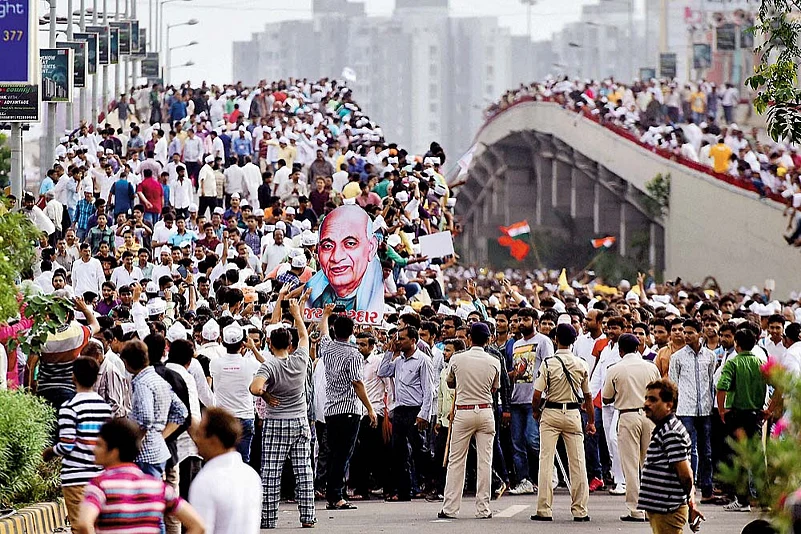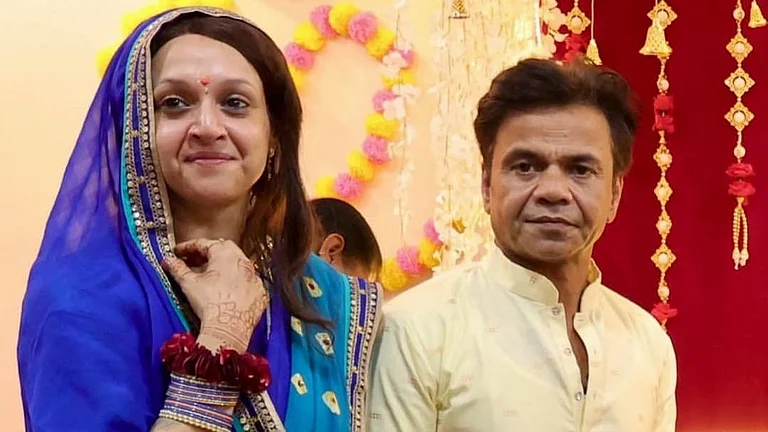The Central Government has on 29th July 2021 announced its decision of extending reservation to Other Backward Classes (OBC) and Economically Weaker Sections (EWS) in the coveted All India Quota (AIQ) for medical seats in Government Medical Colleges of the country.
Media reports suggest that the Prime Minister has in a review meeting on 26th July directed the Ministers of Education and Health and Family Welfare to resolve the issue on “top priority” and “out of court.” The arena of medical education sees in the word of Apex Court “incessant dispute” reaching before it every year, hence the call by the top political executive to resolve the issue “out of court” and implement the constitutional guarantee was timely. Thus, thanks to Prime Ministerial intervention the constitutionally guaranteed reservation for OBC and EWS categories for “admission to educational institutions including private educational institutions, whether aided or unaided by the State, other than the minority educational institutions”, that came in force in January 2006 and January 2019 respectively became a reality only after 15 years six months and 2 years six months in July 2021.
Therefore, the decision has been hailed across the political spectrum with the PM describing it as a “landmark”, while the Tamil Nadu Chief Minister calling it a “significant move in the history of social justice.” The Ministry of Health and Family Welfare (MoHFW) has described it as a “historic and landmark decision”. The objective of this article is not to dwell upon the political aspects of this decision-making, but to elucidate upon the genesis and concretization of the All India Quota scheme; how it has contributed to the holding of a national entrance examination for medical admissions based upon the principle of “one nation, one merit”; shaping of the counselling process; and action in law courts that paved the way for this decision.
Given the significant contribution of the All India Quota in promoting national integration, the article also argues that the policymaker ought to consider extending it in other streams of professional education.
The genesis of All India Quota
The genesis of the All India Quota in Medical and Dental Admissions lies in the practice adopted by some of the State Governments in making wholesale reservations on the basis of ‘domicile’ or residence requirement within the State or on the basis of institutional preference for students who have passed the qualifying examination held by the University or the State, excluding all students not satisfying this requirement. This practice was held to be unconstitutional and void being in violation of Article 14 of the Constitution guaranteeing Right to Equality in Pradeep Jain & Ors. vs. Union of India decided by the Supreme Court on 22 June 1984. However, the Court also held that “a certain percentage of reservation based on residence or institution in a State for admission to MBBS course cannot be said to be irrational or irrelevant and can be introduced as a condition without violating Article 14.”
Late Justice P.N. Bhagwati who later rose to become Chief Justice, a “restless legal crusader”, known for fashioning remedies, after considering the work of the Medical Education Review Committee and the policy statement placed on record by the Government of India, and after hearing all State Governments formulated a scheme in which for MBBS “at least 30 per cent of the open seats shall be available for students on all India basis irrespective of the State or University from which they come and such admissions shall be granted purely on merit on the basis of all India Entrance examination or entrance examination to be held by the State.” In so far as postgraduate courses were concerned the outer limit was directed to not, in any event, exceed 50 per cent of the total number of open seats available for admission to postgraduate courses. He emphasized that the object of such exercise must be to select the “best and most meritorious students”. Thus the Apex Court gave effect to the concept of States surrendering seats to the Central Government for an All India Quota for which admission shall be through an All India Entrance Examination (AIEE).
The judgment in Pradeep Jain’s caseand its implementation ran into several issues which came to be noticed by the Apex Court in Dr. Dinesh Kumar’s case. On 1st May 1985, Justice Bhagwati directed the erstwhile Medical Council of India [MCI] to come up with a positive scheme in regard to holding entrance examinations for admissions to MBBS and PG courses. He kept the matter alive. Pursuant to the directions passed by the Apex Court, the scheme formulated by MCI was circulated to all the States, considered in a Meeting with all States and Universities, convened by MoHFW and thereafter the revised Scheme was placed before the Apex Court. The Court in its order of 21st July 1986 made some suggestions to these schemes that included, confining it to medical colleges or institutions run by the Union of India or a State Government or a municipal or other local authority; option to Private Colleges to join the Scheme; holding the AIEE for MBBS/BDS admission in English; designating CBSE and AIIMS as the authorities for holding UG and PG AIEE respectively; formulating time schedule for holding exam, declaring results and admission schedule; making DGHS the responsible body for holding counselling; and directing the Central Government to arrange finances for this purpose. In so far as the reservation was concerned, in view of the complexities, the Court left it open to be considered at a later date. This scheme envisaged the surrender of 15% of MBBS/BDS and 25% of PG [MD/MS/MDS] seats to the All India Quota. For PG courses the ceiling was enhanced to 50% in 2003. The Apex Court while shaping the AIQ scheme was guided by twin considerations of promoting national integration and merit in medical admissions. More than three decades of implementation of AIQ scheme testifies that the scheme has stood the test of times.
The States of Jammu & Kashmir and Andhra Pradesh since inception remained outside the scheme. However, after the bifurcation of Andhra Pradesh into Andhra Pradesh and Telangana, both States have joined AIQ. Institute of national importance such as AIIMS and PGIMER have also been excluded from the ambit of this scheme. Any problem arising in the implementation of the scheme has been remedied through orders passed by the Apex Court. A system of online counselling came to be introduced in 2012 which has brought in greater efficiency and transparency in the process.
In a series of cases, the Apex Court had declined to extend reservation to SC/ST in AIQ. It was only in 2009 that the Court allowed in Abhay Nath’s case reservation for SC/ST in AIQ. In so far as extending reservation to OBC was concerned the Apex Court was seized of it since 2015 in Dr Saloni Kumar and Pankaj Mandal’s case.
Action for OBC Reservation in Madras High Court
Thirteen writ petitions came to be filed before the High Court of Madras in early 2020 in which nearly all the major political parties of the State, including the Ruling party, and certain individuals, had fought the legal battle seeking reservation for OBC in AIQ quota. The Petitioners alleged that despite constitutional mandate the Centre was not taking steps to extend OBC reservation in AIQ. The Division Bench presided by the then Chief Justice A.P. Sahi delivered an exhaustive judgment in which after analyzing the constitutional provisions, case-law, MCI Regulations and affidavit filed by DGHS came to the conclusion that it was the “implementation part of OBC reservation against All India Quota seats which is warranting in the present case on account of an indecisiveness prevailing in proceeding to take a positive step or otherwise in relation to the claim as set out in the writ petitions.”
The Court held that this was required to be resolved between the State Government and Central Government with the participation of MCI and DCI. Accordingly, it directed the Ministry of Health & Family Welfare to hold a meeting with the DGHS, Health Secretary of Government of Tamil Nadu, Secretary of MCI and DCI “in order to finalise the manner in which the facilities of OBC reservation are to be provided for against All India Quota seats in the UG/PG courses with effect from the next academic year as already proposed by the Central Government.”
Subsequently, for non-implementation of OBC reservation in AIQ for admission in 2021-22 session, contempt proceedings were initiated before the Madras High Court.
Now, hopefully with the Central Government’s decision to extend the benefit of OBC and EWS reservation in AIQ the matter would reach quietus. However, in so far as postgraduate admissions are concerned, there would be challenges in the distribution of seats, as it is seen that generally clinical subjects are sought after, while seats go vacant in pre and para-clinical subjects. Furthermore, the number of seats in a particular stream in a Medical College generally varies from 1 to 25, with no upper ceiling. These seats include both permitted and recognized seats. Recognition is granted only when the first batch admitted against the permission passes out after inspection. There have been several instances when in view of deficiencies recognition has not been granted. Thus carving out a seat matrix of reserved / open category seats would pose a substantial challenge. The principles followed for SC/ST reservation would serve as a lodestar for such purposes.
AIQ shaping NEET and Counselling
Way back in 2009, the erstwhile MCI had sought approval of MoHFW for amending the Regulations for providing a common national entrance test. This process culminated in enacting the Regulations for National Eligibility-cum-Entrance Test (NEET) for admission to UG/PG courses in December 2010. A large number of Writ Petitions came to be filed challenging the legality of these Regulations. Subsequently, MCI had moved transfer Petitions before the Apex Court in early 2012. After lengthy hearings lasting for one and a half year, these Petitions came to be adjudicated upon by the Apex Court on 18th July 2013, wherein the then Chief Justice Altamas Kabir and Justice Vikramjit Sen had quashed the MCI and DCI Regulations relating to NEET.
Subsequently, on 11th April 2016 on a Review Petition filed by MCI/MOHFW the judgment dated 18th July 2013 was recalled and review was allowed. The Court had in separate proceedings directed for the conduct of NEET for MBBS/BDS admissions from that year only. The AIPMT scheduled next month became NEET 1, while NEET 2 was held on a later date that year to enable those who had not filled the form for AIPMT. One month later Central Government issues an Ordinance, providing for the holding of uniform entrance examination for admission to undergraduate and postgraduate medical courses. The newly enacted National Medical Commission Act, 2019 also provides for such uniform entrance examinations. The Supreme Court has on 29th April 2020 upheld the constitutional validity of NEET.
The rich experience gained by CBSE and AIIMS in holding AIPMT and AIPGEE for admission in AIQ enabled both these exams could be modified into NEET. As of now NEET for UG is conducted by National Testing Authority (NTA) and for PG by the National Board of Examination (NBE). Admission to a medical course has to be on the basis of NEET, followed by “common counselling” conducted by DGHS/State Authorities for both Government and Private Medical Colleges. No student can be admitted by the College Authorities directly. The source of any admission in a Medical College has to be through NEET and Common Counselling. NEET is based upon the concept of “One Nation, One Exam and One Merit” to ensure that students are not overburdened by appearing in multiple examinations conducted by their State Governments, the Association of Private Medical Colleges or Deemed Universities. NEET with common counselling has to a great extent streamlined the system of medical admissions and also helped in curbing the menace of capitation fees from the system.
The Way Forward
The constitutional mandate is for extending the benefit of reservation in “private educational institutions, whether aided or unaided” also. For extending the OBC and EWS reservation, the Government had granted seat enhancement both for MBBS and PG courses in Government Medical Colleges. Some private medical colleges in the past have moved Courts seeking seat enhancement for EWS reservations. The matters came to be disposed of by the Apex Court on noting the assurance by the Central Government that it was formulating policy for such purposes. Hopefully, such a policy would be worked out by the Central Government and the advancement of goals of social justice enshrined in the Constitution of India would encompass private sector educational institutions also. The AIQ scheme envisages the participation of private sector institutions also. Such Institutions in order to raise their own credibility and attract meritorious students ought to surrender seats to the AIQ.
The implementation of OBC/EWS reservation in AIQ would have an impact upon the available seats in the general pool. This would certainly affect the chances of meritorious students securing the AIQ seats. It could also possibly force them to venture abroad to obtain medical education adding to the brain drain.
Furthermore, it is high time learning from the rich experience of All India Quota in enhancing the standards of medical and dental education in the nation and promoting national integration, that the Central and State Governments may consider carving out a scheme to extend it to other realms of professional education, such as Ayush, Engineering, Law, Nursing and Allied healthcare. In a democratic polity governed by rule of law, where there is always a “Judge above the Shoulder”, over the executive, the action/inaction by the executive remains subject to judicial review. The decision of extending OBC/EWS reservation in All India Quota may in times to come see some action in constitutional courts.
(Shikhar Ranjan is a former Law Officer of the erstwhile Medical Council of India. The views expressed are in this article personal and may not necessarily reflect the views of Outlook Magazine.)






















